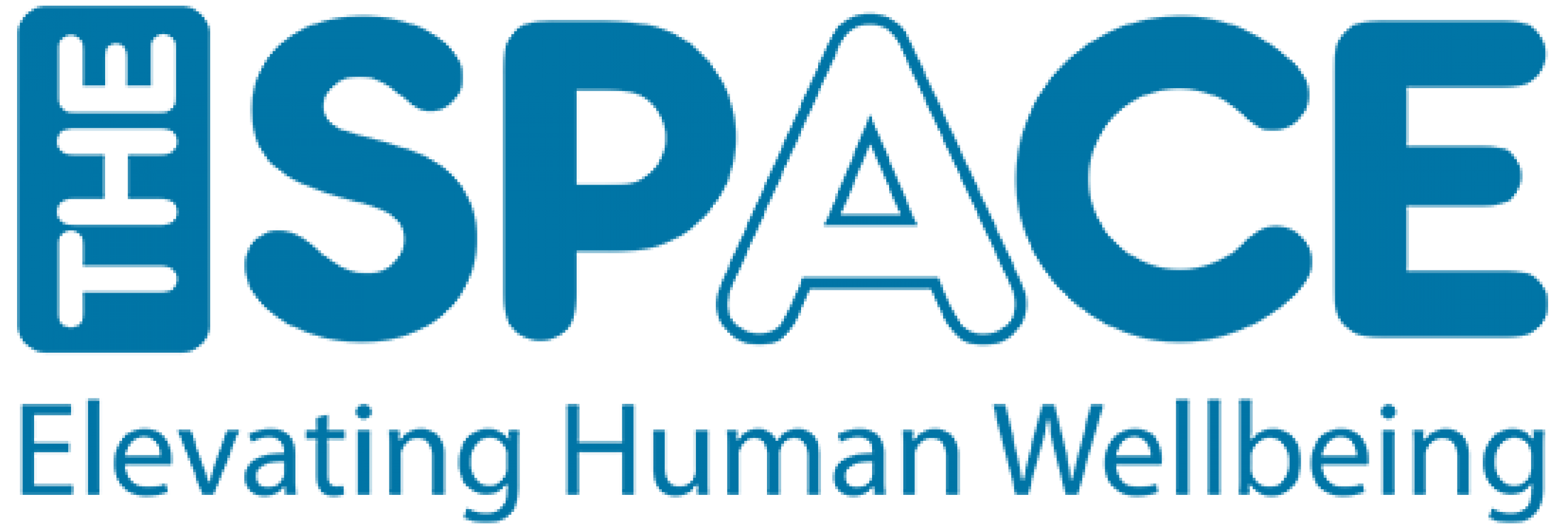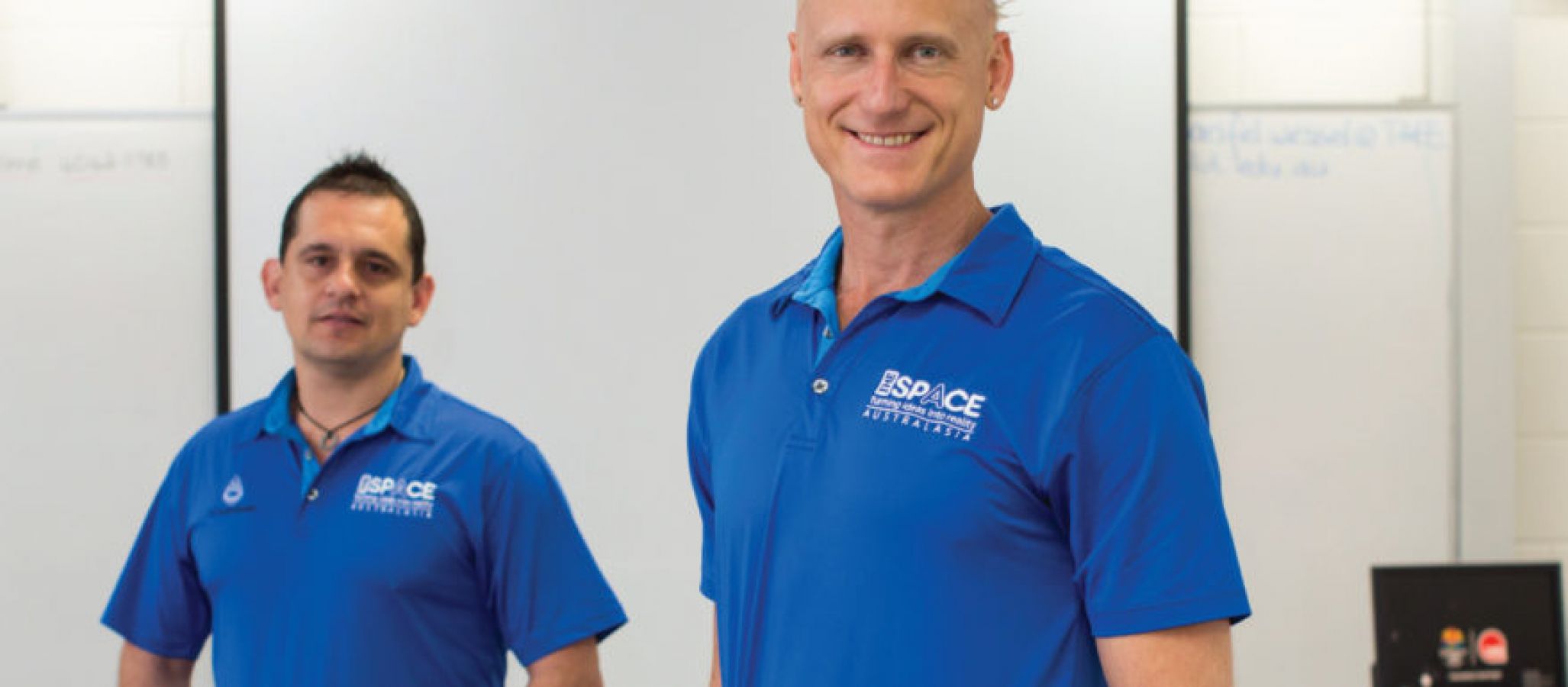Rewriting the rules
The world is changing and the workforce that today’s students will enter tomorrow is evolving. To what exactly? We’re not completely certain. What we do know is that the soft skills associated with entrepreneurship have never been so important. We talk to some of the educators and innovators disrupting our classrooms – in the best way.
This year’s cohort of Prep students will graduate high school in 2029. What will the world be like in 2029? Two near certainties are that technology won’t be what it is today; it will have evolved time and time again, disrupting and changing our world as we know it. The other certainty is that, caused by tech advancements, employment will be different than what it is in 2017. How we work, what we do, from where we do it. And that is the workforce today’s Prep students will be entering.
The looming question then is just how do we prepare them – and all other students before and after – for the world of 2029?
One Cairns-born program actively working to prepare students for the future is Emerging Entrepreneurs, developed by Troy Haines and Damian Zammit, who also co-founded start-up and innovation hub theSPACE Cairns.
Emerging Entrepreneurs is a fully accredited digital online learning platform, mapped to the Australian curriculum, and available to high schools around the country. Since launching to schools in 2015, the 10-module plug and play program has been embraced by almost 20 schools, and received support from Advance Queensland, James Cook University (JCU) and TAFE North.
“We identify with the fact that the world is changing and the change we’ve experienced over the last 10 years is nothing like the change we’re going to experience over the next 10 years,” says Troy. “And that’s going to mean a lot of jobs that we’re educating our students for will become redundant. Those soft skills that people keep talking about – creativity, resourcefulness, collaboration, passion – schools aren’t giving kids enough to understand those fundamentally, to adopt those adequately.
“By teaching kids entrepreneurship at a young age it gives them those skills and that then cuts across to entrepreneurship and employment.”
Emerging Entrepreneurs was born out of theSPACE, which teaches people about entrepreneurship and how to turn ideas into reality. Some of Troy and Damian’s workshop participants pointed out the value of a similar program for their children. Enthused by this idea, Troy and Damian went into start-up mode. “It was a case of taking our own medicine in terms of going through the process we teach people. We put up an expression of interest with a flyer which got an uptake of about 10 students from five different schools and a home school.”
In a matter of weeks Troy and Damian had developed a pilot program, which was the basis of the Emerging Entrepreneurs format today.
“The world is changing around us and reality is that students will need to create a job rather than find one,” explains Troy. “As part of learning these skills they will be able to apply these skills to any job and become better employees as well.”
More and more high schools are introducing specialised entrepreneurial programs, like Emerging Entrepreneurs. There are others out there, like the $20 Boss Program and primary-school-focused Lemonade Stand among others, and of course some schools have designed their own programs.
The benefit of the Emerging Entrepreneurs program is that it’s been developed locally, tried and tested, is connected to a broader start-up network for life beyond school hours and graduation, and connects students with mentors within the local community who have been through the start-up process (and often the start-over process too).
JCU provided foundational funding for the program in 2015, excited by the opportunity to see how a program tailored to high school students might be taken up more broadly.
“It is really important that programs such as these are available for young people,” offers JCU Vice Chancellor Sandra Harding.
“There is no need for a young person to wait until they are older, if they have a good idea, they can work on making it happen right now,” says Sandra.
“This isn’t to say that building a social or commercial enterprise is an easy thing to do, it isn’t, there will be lots of problems to be solved along the way, but every challenge increases the experience necessary to build something successful, and there are lots of ways to avoid making mistakes – including by tapping into people who have done this before.”
Both Sandra and Troy offer the example of four Cairns students (hailing from Smithfield High School, St Augustine’s College and St Andrews College) who spent weekly sessions at theSPACE and developing an idea into an award-winning, commercial business, the Powershot App, which enables users to measure speed using a smartphone and will soon launch on the Apple Store.
Powershot App’s concept creator Elliot Bairstow was in Grade 5 when he began pursuing his idea, and was part of the pilot program for Emerging Entrepreneurs. From that experience, he gathered a friend – Cory Dent who, like Elliot, is now in Grade 7 (as is Jessica May who joined the group later) – and registered for one of theSPACE’s Startup and Innovation Weekends, where they met Hamish Howieson who is now in Grade 9. The four became the founders of Powershot App, along Dr Jason Holdsworth from JCU’s IT department who heard about the young innovators through his involvement at theSPACE and offered his technical skills and support. In September, the school-aged app developers won a national iAward from the Australian Information Industry Association.
Just last month Troy and Damian ran a school holiday program, which included talks with parents of young entrepreneurs. “The parents are the key drivers – we can’t take all the credit,” admits Troy. “The kids have done their bit, the parents have done their bit. So the question is, how do you support your kid to be an entrepreneur? It’s important to share lessons learnt, to teach other parents how they’ve actually supported the kids to move through the process to get to the other level.”
Sandra says schools are doing all sorts of interesting things in this entrepreneurial space too.“St Patrick’s College is offering a new subject in 2018 called The Start Up, which is an immersive enrichment subject for aspiring entrepreneurs and future global leaders, and other schools all have really innovative initiatives which seek to develop science, technology, engineering, mathematics and creative skills in students.
“Townsville is very lucky to have some world-class high school educators. Sarah Chapman, Head of Science Department at Townsville State High, has been a fantastic leader in our community, working enthusiastically to set up initiatives such as the Global Tropics Future Project and the STEM Hub. Shauna McCormack has joined Blackheath and Thornburgh College this year as Head of STEM and was instrumental in organising Science Week in August with a focus on agriculture. She also attracted scientists from around the world to come to Charters Towers.”
“We need to increase the status of our teachers – the work they do is critical to our national future.”– SANDRA HARDING
As an institution tasked with preparing the teachers of tomorrow to teach the students of tomorrow, JCU works intensively with schools, through the placement of pre-service teachers and professional development of experienced teachers, with school children directly through initiatives such as STEM Club, and collaborates with teachers to develop new ways to engage school children in innovative curriculum.
“There are many great people, great teachers, in our education system at all levels who work hard every day to prepare students for their future,” says Sandra.
“We need to better resource our education system from the earliest years through to the highest levels, including VET, and VET in Schools, of course. We need to increase the status of our teachers – the work they do is critical to our national future. Without focusing on these things, we will be hampered in our capacity to create the labour force of tomorrow and meet the demands of the economy to come, one that will be exposed to ever stronger and sharper global competition.”
For Sandra, it’s very much about developing entrepreneurial skills in students from an early age, regardless whether they go on to be employees or business owners.
“We need students to stay in school, to succeed in their studies and to go on to further study after school. The new workforce and the new economy will demand (it is demanding this now) more people with highly developed problem solving and critical thinking skills. If we are in a state of transformation as a local, regional and national economy, in a world that is changing fast too, we need to ensure that our children grow up with the skills to understand, learn and adapt, to create as well – to have a go. These skills can be taught,” points out Sandra. “In fact, critical and creative thinking is one of seven general capabilities that underpin the current Australian Curriculum.
“Students require confidence and broad based understanding about how to think, how to work, how to make sense of the world, to look for opportunities, understand challenges and have a keen ability to confront all this and work successfully in a sea of change.
“At JCU we are working to provide our students, and critically our staff too, with multiple opportunities to practice an entrepreneurial approach to their endeavours. It is really important that universities work closely with local startup ecosystems in this respect. JCU engages with local entrepreneur-led activities and entities, such as the new Ignite FNQ in Cairns, and groups such as iNQ and Startup Townsville in Townsville – for example, JCU and iNQ hosted a joint Entrepreneur-in-Residence program earlier this year.
JCU students have also had the opportunity to participate in Startup Weekends and to travel to the Myriad Festival, a flagship entrepreneurship and innovation conference that will be held in March each year.
As Sandra points out, the next five-to-10 year horizon means large parts of many peoples’ current jobs will no longer be required, and those employees will be part of creating new work and new ways of doing that work. “As we have seen in every technological revolution throughout history, there are creators and early adopters, and then a technology or practice becomes mainstream.
“JCU’s campuses are being designed to facilitate interaction and opportunities for students, industry and the community to come together to work on entrepreneurial projects. The Cairns Innovation Centre is being built on our Smithfield campus and it will be the new home to Australia’s first Bachelor of Engineering – Internet of Things degree. There are also plans in Townsville for a Technology Innovation Complex.
“These facilities mean that the design, build and test capabilities that the university has are much more easily accessible to the people of northern Queensland.”
Troy says the Emerging Entrepreneurs program is about showing there is a third study pathway for students – an entrepreneurial pathway – and connecting students to a sense of “they are enough”.
“It’s about looking at what’s unique inside you and scaling that. The school system as it is at the moment can crush it out of you unfortunately, because we’re still trying to put people into boxes…. That’s not the world anymore, we need to be collaborative and free flowing and open and creative. There’s work to be done.”
Indeed there is.
Full story: https://successnq.com.au/2017/10/03/rewriting-the-rules/

